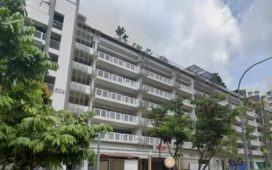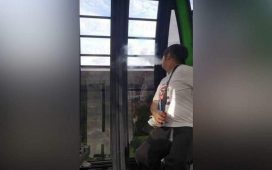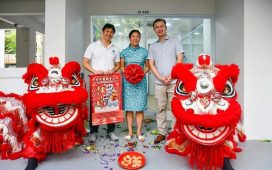Growing up, Azmie Haji Azan was a shy boy. It was only after he entered polytechnic that he emerged from his shell.
Azmie graduated with a single-digit O level score, and had several options for his future. But Republic Polytechnic (RP) was one of his top choices because of its new facilities, differentiated style of teaching, and nurturing community.
Having always been interested in science, pharmacy was a way to make theory practical, through the development of drugs.
“I wanted to develop and manufacture new drugs to help people,” Azmie says.
It turns out to be one of the best decisions he has made, transforming his introverted self to someone who’s more outgoing.
“I’ve really enjoyed my time here. In secondary school, I would do things myself. But now, during breaks, we go down together. Sit together. Even go home together,” says the 18-year-old.
Today, if you see Azmie at RP, it’s almost as if you were looking at a different person.
The Year 2 pharmaceutical science student regularly presents his answers to class.
This transformation is part of the intentional design of classes to help students be more confident.
Inside the classroom
In his classes, Azmie was put in situations where he had to work regularly with other students.
For instance, as part of the Pharmacotherapy and Pharmacy Practice module, students like Azmie have to work in teams to come up with the best recommendations for prescription drug-related case studies. There would then be a role-playing approach in presenting the solutions, with the lecturers acting as doctors or patients to build the essential communication skills needed by the students for their careers.
Working in teams and learning in groups take centrestage in the RP learning journey. Hence, the institution takes a more collaborative approach to its learning and teaching style that teaches students to become resourceful and be critical thinkers through social interaction.
This approach helps students to be confident in presenting their views in class, promoting active participation.
Dr Dawn Er, the Programme Chair of the Diploma in Pharmaceutical Science course, says students are taught “through real-world problems encountered in the industry, to allow students the opportunity to think critically, analyse problems and develop innovative solutions collaboratively”.













